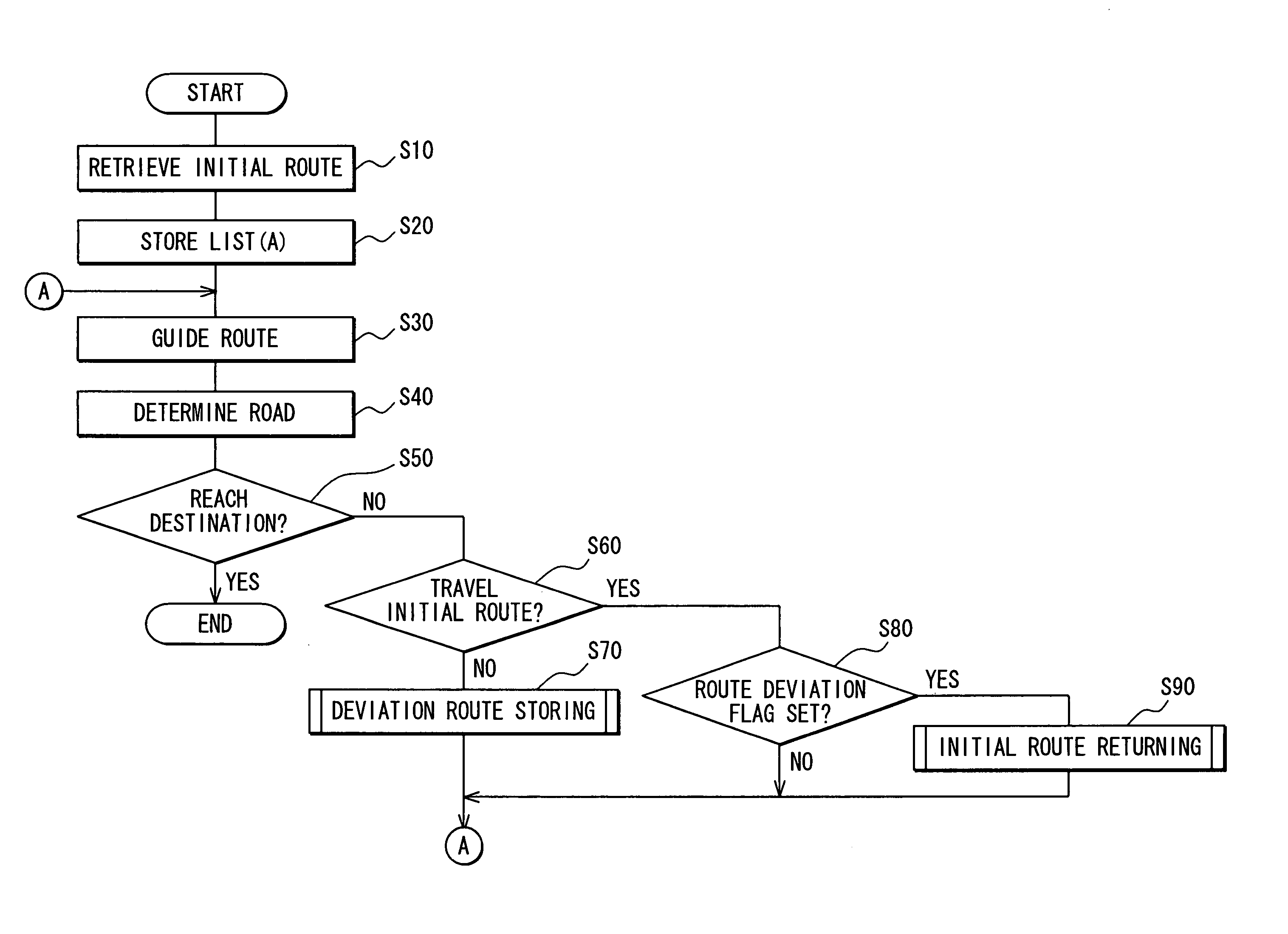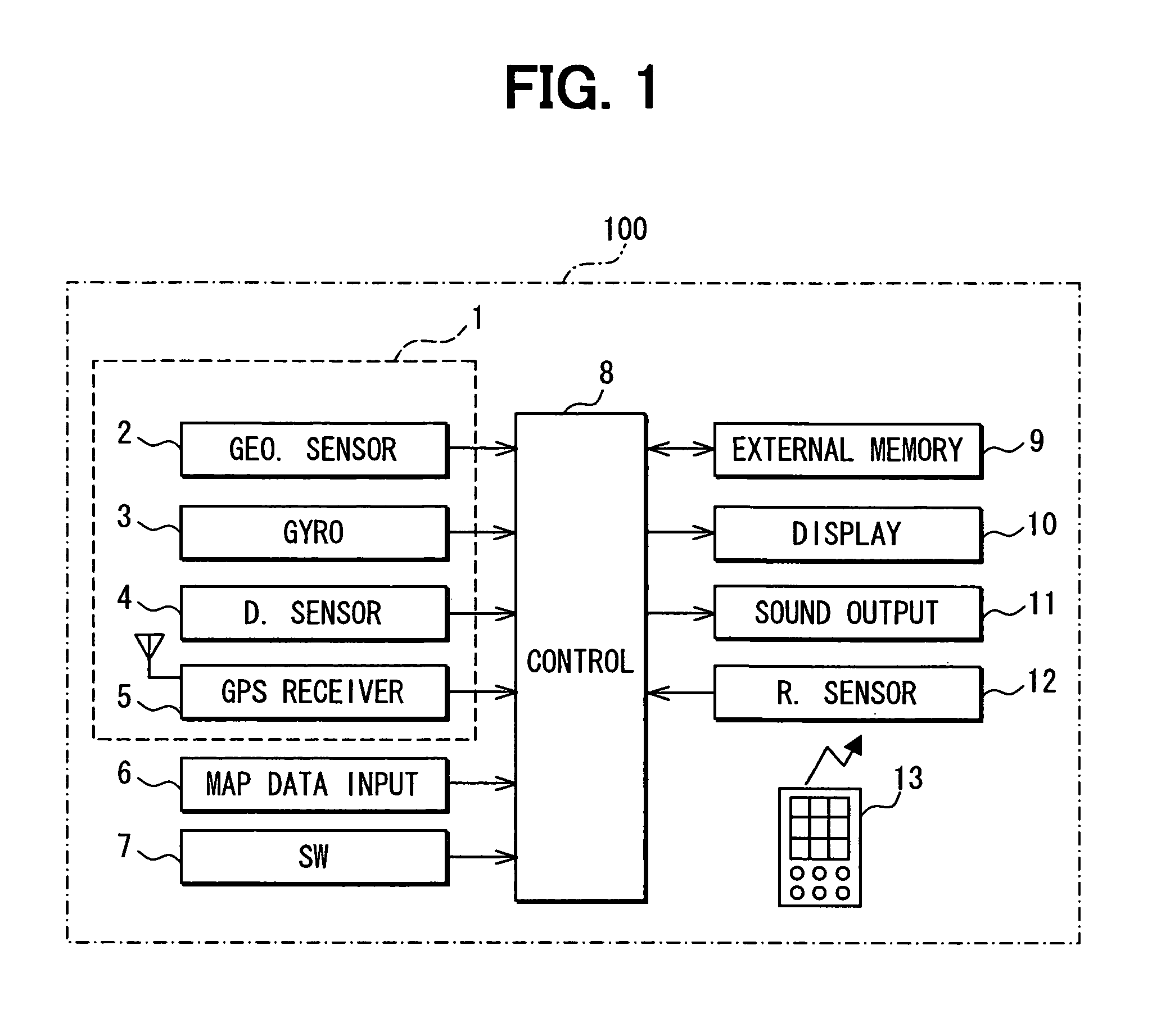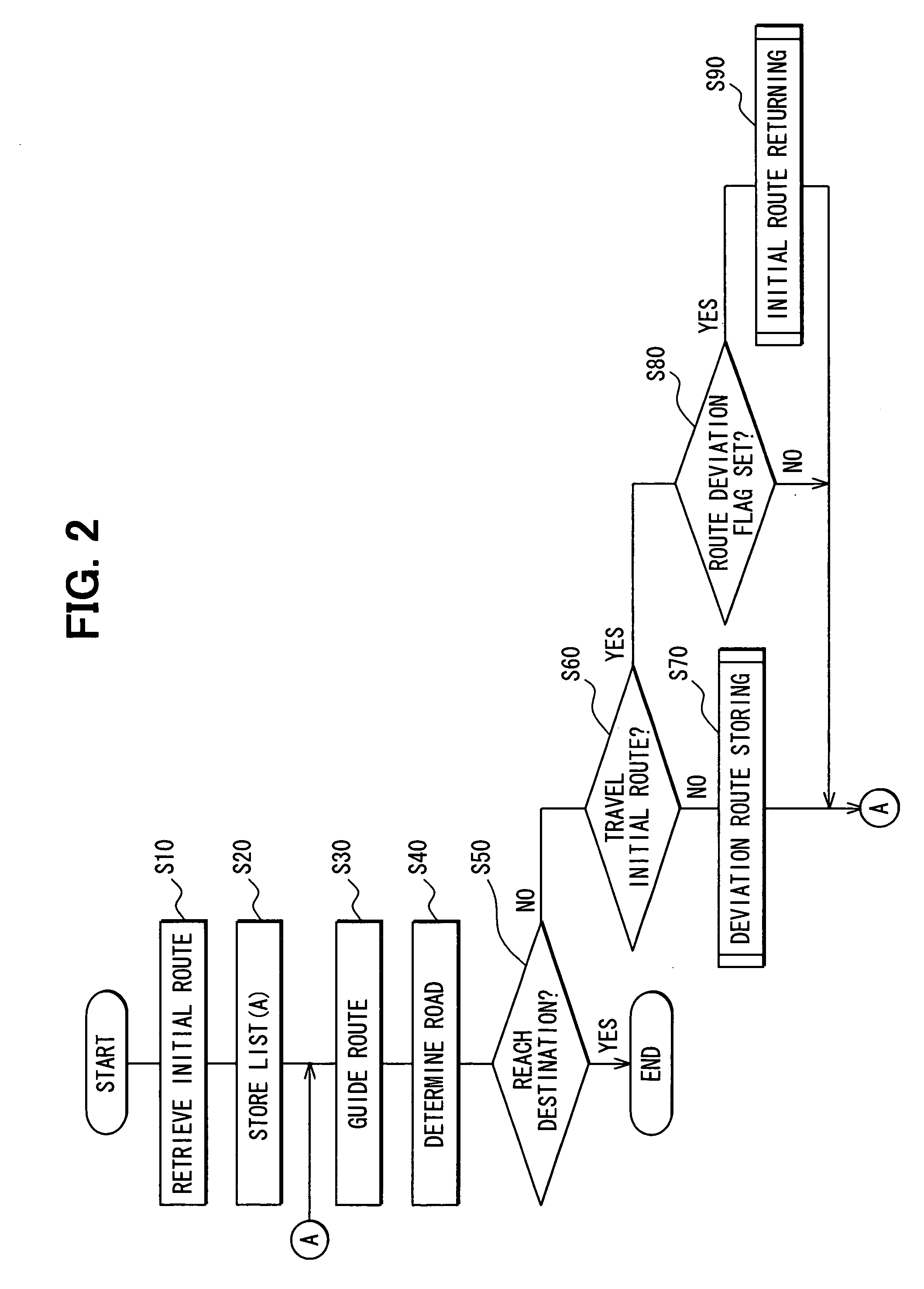In-vehicle navigation device
a navigation device and vehicle technology, applied in the direction of navigation instruments, distance measurement, instruments, etc., can solve the problems of increasing the cost of the retrieval unit, increasing the cost of the making it difficult to select the link to which the detour coefficient is assigned, etc., to achieve the effect of increasing the cost of the link
- Summary
- Abstract
- Description
- Claims
- Application Information
AI Technical Summary
Benefits of technology
Problems solved by technology
Method used
Image
Examples
modification 1
[0068] (Modification 1)
[0069] In this embodiment, when the detour coefficient is assigned to the link at Step S96, a direction of the link is not considered. Namely, when the road has mutually opposing (or bi-directional) lanes, which lane the vehicle can not travel is not considered. However, there is a case where only one direction is impassable due to the repairing or the like. In this case, it is not favorable that the lane being passable is affected by the detour coefficient. Therefore, when the detour coefficient is assigned to the link at Step S96, a direction of the link that is impassable can be simultaneously stored (see FIG. 9). In this case, when the route retrieval is conducted, the cost corresponding to the relevant direction is computed in consideration of the detour coefficient with respect to the link that the detour coefficient is assigned to.
modification 2
[0070] (Modification 2)
[0071] In this embodiment, whether vehicle's deviating from the initial route results from a given purpose such as dropping into a certain position is determined by whether the engine is turned off or not. However, for instance, there is a case where the vehicle is parked and a user of the vehicle drops into a certain position while the engine being on the ON state. To suppose this case, the above determination can be done based on a flowchart in FIG. 10.
[0072] At Step S110, it is determined whether a shift position of the vehicle is switched to a shift position P (i.e., a parking position). This is achieved by connecting the control circuit 8 to a sensor to detect a shift position. Here, when it is not detected that the shift position is switched to the shift position P, there is high possibility that the vehicle is traveling. Therefore, the process for setting the objective-possessed detour flag is not subsequently conducted. In contrast, when it is detecte...
PUM
 Login to View More
Login to View More Abstract
Description
Claims
Application Information
 Login to View More
Login to View More - R&D
- Intellectual Property
- Life Sciences
- Materials
- Tech Scout
- Unparalleled Data Quality
- Higher Quality Content
- 60% Fewer Hallucinations
Browse by: Latest US Patents, China's latest patents, Technical Efficacy Thesaurus, Application Domain, Technology Topic, Popular Technical Reports.
© 2025 PatSnap. All rights reserved.Legal|Privacy policy|Modern Slavery Act Transparency Statement|Sitemap|About US| Contact US: help@patsnap.com



